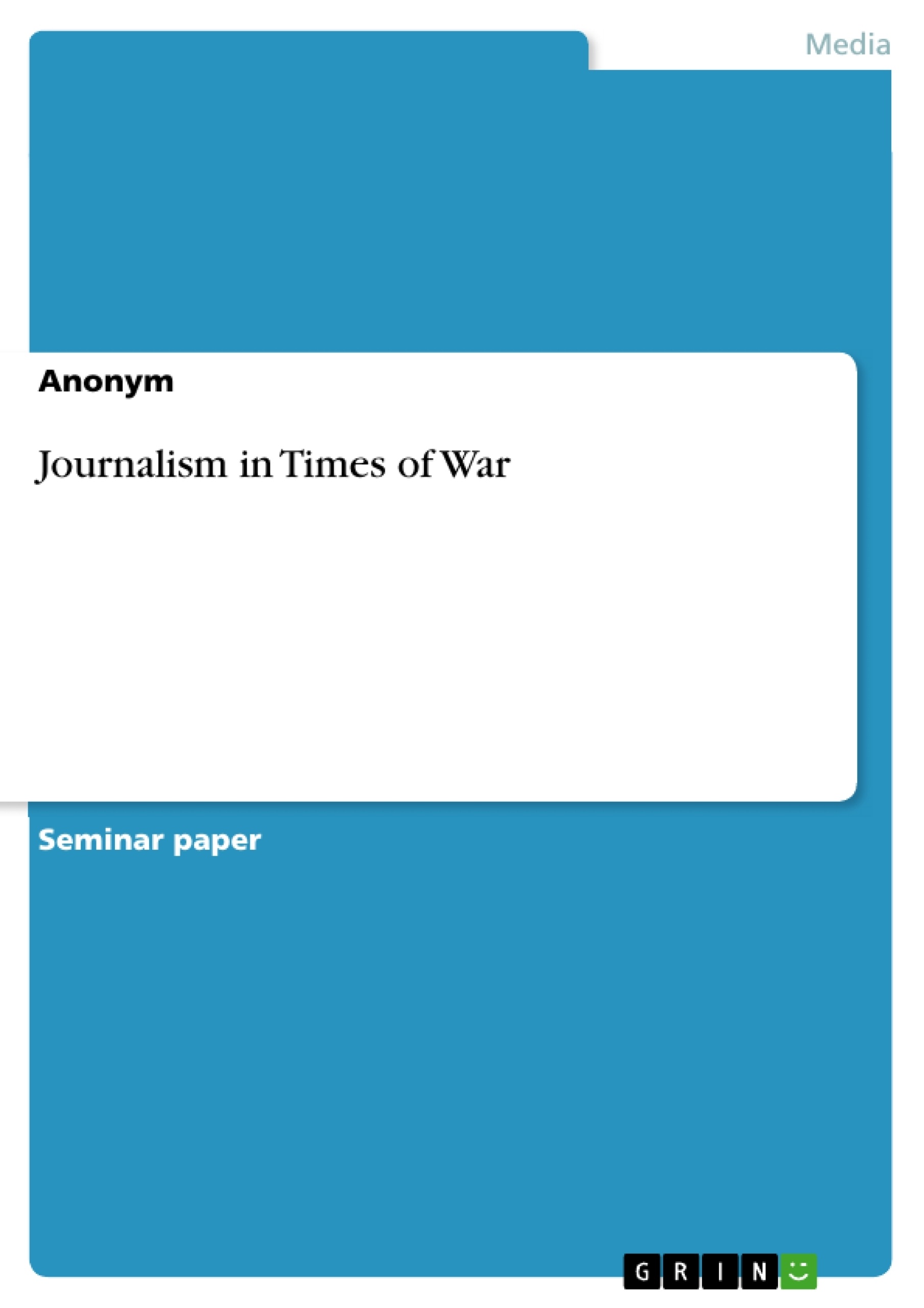World War II saw the beginning of radio broadcasting of wars. Walter Cronkite, stationed in London, reported from the city as it was hit by German bombers. He reported on the everyday life and suffering of the Londoners in his characteristic mixture of in-formativeness and gripping imagery. The reporter risked his life in standing on the roof of his hotel for better oversight of the nightly air raids and also for transmission reasons. Later in the war, Cronkite also accompanied British planes as they flew air raids against German cities, especially Berlin.
What makes Cronkite’s reports so special is their gripping style and their deep humanism. Cronkite could narrate with an intensity that made it possible for the average American who had never left his country to actually feel the atmosphere of dread in London. This is a strength in a reporter, because it allows for an emotional involvement of the audience, beyond their intellectual understanding. Before the advent of the television, this was even more important. This does not mean, however, that today such a quality would be less important - the images transported by the camera need to be selected and put into context too. In that way Cronkite is still a role model for current journalism. The other stark point of this reporter was his deep respect for every human, every individual, nearly independent of his or her nationality. For me, it was amazing to hear Cronkite report with the same eye for suffering on London and Berlin, although he only saw the latter from above. However, he imagined the suffering there must be in the city, being one sea of flames after the raid. In my eyes, there is no higher praise for a reporter than to say he gave his audience a sense of humanity, a sense of the universality of the human struggle and suffering - such reporting goes far beyond what we can expect to see today, both in U.S. and German television.
Inhaltsverzeichnis (Table of Contents)
- Historic Evolution of War Coverage
- Criteria and Challenges for War Journalism
- Coverage in the Build-Up to the Iraq War
- Coverage during the Iraq War
Zielsetzung und Themenschwerpunkte (Objectives and Key Themes)
This paper examines the historical evolution of war coverage in journalism, specifically focusing on the changing dynamics between the media and the government in times of war. It explores the challenges faced by journalists in covering conflicts, the impact of technology on war reporting, and the ethical considerations that arise in presenting information during wartime.
- Evolution of war coverage through different conflicts (World War II, Korean War, Vietnam War, Gulf War)
- Changing relationships between the government and the press
- Impact of technology on war reporting
- Ethical considerations in war journalism
- Role of journalism as a check on government power
Zusammenfassung der Kapitel (Chapter Summaries)
Historic Evolution of War Coverage
This chapter explores the evolution of war coverage, starting with Walter Cronkite's reporting during World War II. It highlights Cronkite's humanism and his ability to convey the emotional impact of war to the American public. The chapter then discusses the coverage of the Korean and Vietnam Wars, emphasizing the increasing influence of television and the shift towards a "living-room war." It concludes by examining the coverage of the Grenada and Gulf Wars, where the military's focus on public relations and the emergence of "spin doctors" presented new challenges for journalists.
Criteria and Challenges for War Journalism
This chapter delves into the challenges faced by war journalists in a democratic society. It examines the tension between the journalist's role as a watchdog and the need to maintain national unity during wartime. The chapter also discusses the ethical considerations involved in covering conflict, including the balancing act between presenting the truth and avoiding harmful consequences.
Schlüsselwörter (Keywords)
The core keywords and focus topics of this paper are: war journalism, government-press relationship, media influence, ethical considerations, technological impact, historical evolution, national security, public opinion, propaganda, truth, neutrality, and responsibility.
Frequently Asked Questions
Who was Walter Cronkite and why is he important for war journalism?
Walter Cronkite was a legendary reporter who covered World War II with a unique blend of humanism and gripping imagery, setting a standard for emotional involvement and integrity.
How did war coverage change during the Vietnam War?
It became known as the "living-room war" due to the increasing influence of television, which brought the harsh realities of conflict directly into people's homes for the first time.
What are the main ethical challenges for war journalists?
Journalists must balance the role of a watchdog against government power with the need for national security and the ethical responsibility of presenting the truth without causing unnecessary harm.
What is the 'spin doctor' phenomenon in military reporting?
It refers to the military's use of public relations experts to control information and manage the media's narrative, especially prevalent since the Gulf War.
How does technology impact modern war reporting?
Technology allows for real-time reporting and transmission from hazardous areas, but it also increases the pressure for speed over context and makes information easier to manipulate.
What makes Cronkite's reporting style unique?
His style was characterized by a deep respect for all individuals, regardless of nationality, and an intensity that allowed the audience to feel the human struggle behind the headlines.
- Quote paper
- Anonym (Author), 2006, Journalism in Times of War, Munich, GRIN Verlag, https://www.grin.com/document/66801



